Meet the recipients of the 2023 Personnel Awards for Black Scholars
Heart disease and brain health conditions including stroke are among the leading causes of death and disability in Canada and around the world. Earlier this year, Brain Canada, the CIHR Institute of Circulatory and Respiratory Health, and Heart & Stroke launched the inaugural Personnel Awards for Black Scholars. This program is designed to increase the number of highly qualified Black trainees in heart and/or brain research across Canada. These awards will reinforce Black representation and leadership within the heart and brain health research communities and, in the long-term, support the expansion of culturally safe research that meets the needs of Black communities. This program is also designed to increase the capacity for this research community to provide supportive mentorship opportunities to future trainees from diverse backgrounds as part of their scientific training.
These 19 awards will support 12 master’s students and 7 doctoral students for one to three years as they study, participate in exciting heart and/or brain research, and engage with valued mentors.
Learn more about the 19 trainees who were selected to receive these awards.
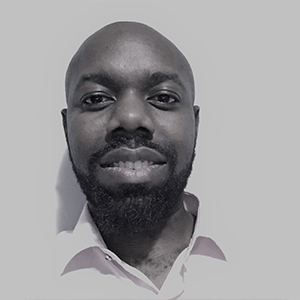
Tyler Agyekum
Master’s student at McGill University under the supervision of Dr. Mallar Chakravarty
Tyler Agyekum is working to better understand how to prevent hippocampal atrophy, which is the degeneration of the hippocampus, an area of the brain involved in memory and spatial navigation. Learning more about hippocampal atrophy could provide insights on ways to prevent the cognitive decline that occurs in diseases like Alzheimer’s. This award will support Tyler to focus on participating in conferences, workshops, and grant competitions.
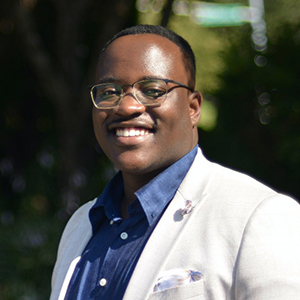
Kennedy Ayoo
Master’s student at the University of Toronto under the supervision of Drs. Antoine Eskander, Thomas Lindsay, and Jonathan Irish
While radiation therapy is an effective tool in cancer treatment, it can lead to vascular disease as a side effect. Kennedy Ayoo’s research team aims to quantify the risk of stroke and transient ischemic attacks, sometimes called mini strokes, in patients with head and neck cancer following radiation therapy. This award will help equip Kennedy with the skills needed to address pressing questions about patients at risk of stroke.
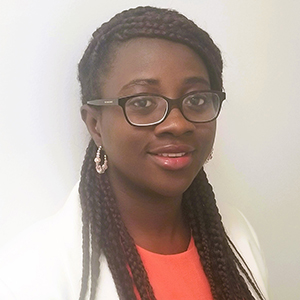
Deborah Baiden
Doctoral student at the University of Toronto under the supervision of Dr. Monica Parry
There is little information about how high blood pressure affects pregnant women of African descent in Canada. Deborah Baiden is working to improve our understanding by surveying and interviewing women who have experienced high blood pressure during pregnancy. This award will support Deborah on the path to developing a robust, equitable research program.
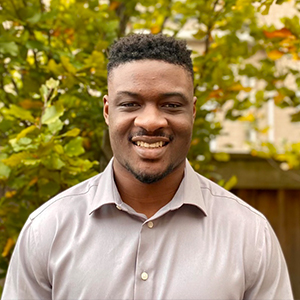
Daniel Deletsu
Master’s student at McMaster University under the supervision of Dr. Michael Carter
Sensorimotor interactions are activities that involve our senses and body movements, and these interactions happen constantly in everyday life. Daniel Deletsu is on a mission to better understand how visual feedback and movements can affect these sensorimotor interactions between people. Through this research, Daniel aims to generate new knowledge that will inform the development of more effective robot-assisted neurorehabilitation protocols.

Ismália De Sousa
Doctoral candidate at the University of British Columbia under the supervision of Drs. Sandra Lauck, Sally Thorne, and Thalia Field
Ismália De Sousa will be investigating the experiences of young women diagnosed with a stroke, with a specific focus on how their living conditions, economic circumstances, social and environmental challenges, and other social determinants of health impact their access to stroke care. The Personnel Awards for Black Scholars program will allow Ismália to focus on developing the specialized knowledge and skills needed to create clinical impact and address inequities in stroke care.

Khady Diagne
Doctoral student at McGill University under the supervision of Drs. Gil Bub and Leon Glass
Early heartbeats disrupt the heart’s synchronicity and can lead to cardiac disease. Khady Diagne is working to identify the mechanisms that underlie early heartbeats with a goal to help physicians choose the best treatments for their patients. This personnel award will take Khady’s research to new levels.

Tolu Faromika
Master’s student at York University under the supervision of Dr. Shayna Rosenbaum
Tolu Faromika will be investigating the ways that stroke can impact spatial memory and navigation – how we move around the world. As part of this research, Tolu and her team hope to better understand how damage to certain areas of the brain can affect the navigation of new and familiar environments. With this personnel award, Tolu is one step closer to achieving her dream of becoming a clinical neuropsychologist.
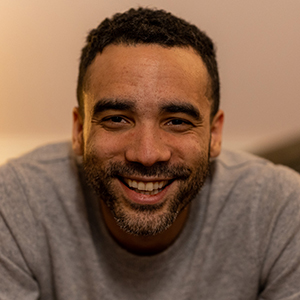
Patrick Hewan
Master’s student at York University under the supervision of Drs. Gary R. Turner and Nathan Spreng
How does decision-making change during the pre-clinical stages of Alzheimer’s disease? Patrick Hewan will be using a combination of decision-making games and detailed brain scans to find out. As part of this research, Patrick will have the chance to collaborate with researchers from across Canada, an early milestone in his research career.

Amirah-Iman Hicks
Doctoral student at McGill University under the supervision of Dr. Masha Prager-Khoutorsky
Amirah-Iman Hicks is studying how specialized brain cells, called tanycytes, monitor changes to the peripheral circulation. Peripheral circulation is dynamic; it involves the flow of blood, the distribution of blood flow, blood exchange with tissues and storage. Amirah-Iman is also researching whether tanycytes can communicate these changes to nearby neurons. This award will help Amirah-Iman to thoroughly study tanycytes and their impact on energy balance, cardiovascular regulation, and body-fluid regulation.
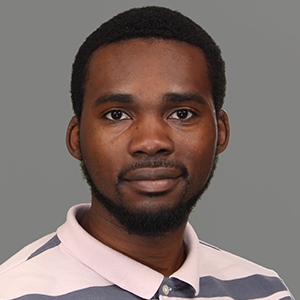
Jeremies Ibanga
Master’s student at the University of Alberta under the supervision of Dr. Simonetta Sipione
Jeremies Ibanga is determined to expand our understanding of brain disorders like Huntington's disease and Parkinson’s disease. Specifically, Jeremies is studying the role of gangliosides, a type of molecule found in the brain, in hopes of developing new therapies for brain disorders. Jeremies is committed to becoming a clinical scientist and hopes to serve as a role model for future Black scientists.
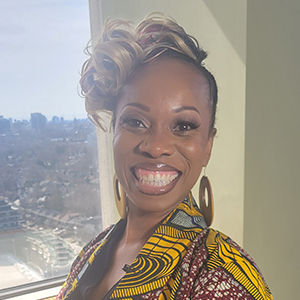
Ngozi Iroanyah
Doctoral student at York University under the supervision of Dr. Marina Morrow
Ngozi Iroanyah is working to better understand the experiences and perspectives of older Black adults living with dementia and their caregivers. Ngozi will be using an intersectional analysis approach to study this under-researched area. This is an important step in Ngozi’s path as a health equity and policy researcher studying dementia in diverse communities.
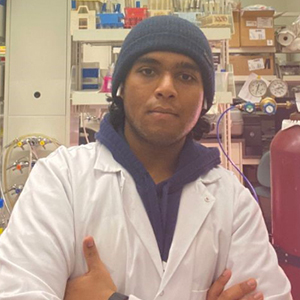
Ibrahim Khodabocus
Doctoral student at the University of Alberta under the supervision of Dr. Stephane Bourque
Ibrahim Khodabocus is studying late-onset neonatal sepsis and how this affects organ growth, dysfunction, and energy metabolism. Ibrahim and his research team are also learning about the lasting consequences of late-onset neonatal sepsis on heart and liver function. He hopes to continue working in this area and eventually establish an independent research program.
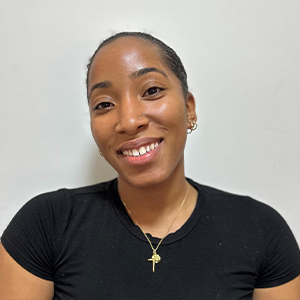
CéAnn Marks
Master’s student at York University under the supervision of Dr. Lauren Sergio
Concussion recovery varies between males and females. CéAnn Marks is studying the differences between sexes in hand-eye coordination skills and emotions after a concussion. Through this grant, CéAnn is paving the way for more personalized and effective treatment strategies for concussion. Receiving this personnel award provides support and recognition of CéAnn’s research.
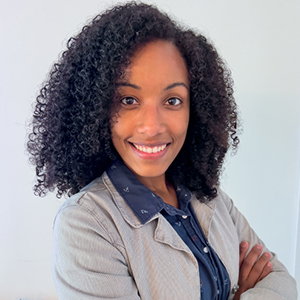
Juliana Nunes da Silva
Master’s student at the University of Toronto under the supervision of Dr. Shannon MacDonald
Women have been underrepresented in stroke research studies, despite the similar stroke incidence for men and women. Juliana Nunes da Silva will be looking at factors that prevent or encourage women and men to join stroke research studies, which will help to improve equal representation in future stroke studies. For Juliana, this research is an early achievement on the way to becoming an independent researcher.

Daniela Oboh
Master’s student at the University of Calgary under the supervision of Drs. Jonathan Epp and Cindy Barha
Daniela Oboh is investigating sex differences in the efficacy of exercise interventions to improve brain health. Through this research, Daniela aims to find out how biological sex and Apolipoprotein E, a protein involved in fat metabolism, affect the impact of exercise on executive functions, memory, and the brain’s ability to grow and evolve.
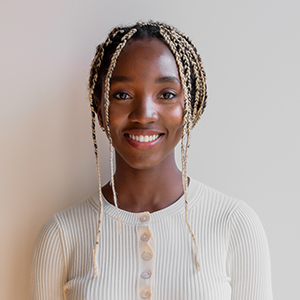
Ifeoluwa Olaoluwa
Master’s student at the University of Ottawa under the supervision of Drs. Jennifer Phillips and Robyn McQuaid
Why do some people respond better than others to treatments for depression? Ifeoluwa Olaoluwa is looking into the ways inflammatory and metabolic factors influence the antidepressant effects of rapid-acting treatments among patients diagnosed with depression. Through this award, Ifeoluwa hopes to demystify the connections between mental and physical health.
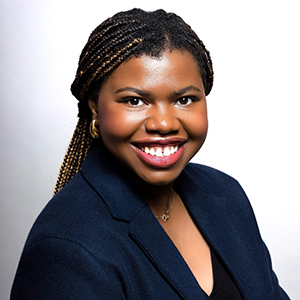
Anthonia Oluwatosin Aina
Doctoral student at the University of Toronto under the supervision of Dr. Joyce Chen
Can music help people heal after a stroke? Anthonia Oluwatosin Aina is working to find out whether listening to music during stroke rehabilitation can improve patients’ movement. She hopes the findings from this research will inform clinical rehabilitation practices for stroke and other neurological conditions. Anthonia plans to become a clinical scientist.
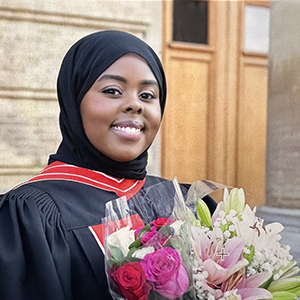
Samira Omar
Master’s student at the University of Toronto under the supervision of Dr. Angela Colantonio
Samira Omar’s project will examine institutional racism and Black experiences of traumatic brain injury rehabilitation in Canada. Samira is looking to understand the experiences of people with lived experience, family caregivers, and service providers. This project brings Samira one step closer to becoming a university professor engaged in teaching, research, and clinical practice in the field of rehabilitation.
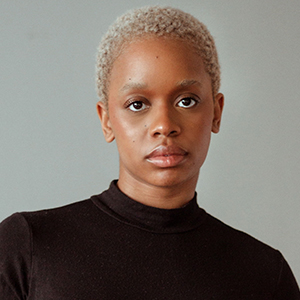
Rachael Rowe
Master’s student at the University of Toronto under the supervision of Dr. Patrick O. McGowan
Rachael Rowe is investigating the effect of high-fat diets among pregnant people on their unborn children. Specifically, Rachael aims to reset microglia activation (a type of cell located throughout the brain and spinal cord) among fetuses. As a Black, queer scientist, Rachael hopes to inspire people of all genders and races to continue to strive for careers in the sciences.
- Date modified: